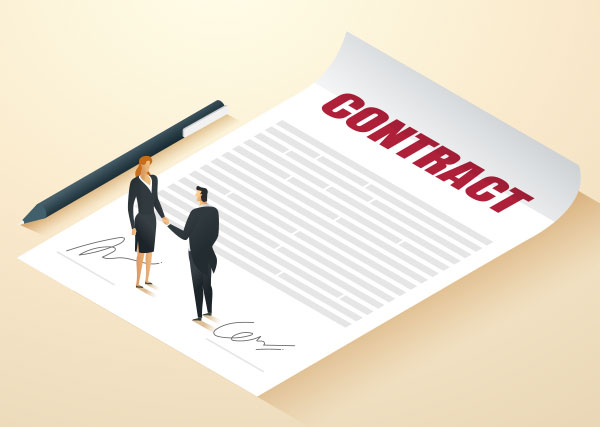Key Considerations When Hiring a Contractor in Florida for Your Next Build
Finding the right contractor for your next construction project in Florida can make or break its success. You need to think about several important things before you choose someone to do the work. This choice will have a big impact on how well your project turns out.
Last updated:
Nov
27
,
2025
Published:
Nov 1, 2024
3mins
Read
This blog will talk about what you should keep in mind when picking a contractor in Florida for your upcoming build. We'll cover everything from figuring out what your project needs and checking out possible contractors, to setting up clear ways to talk to each other and keeping an eye on how things are going. These steps are key to making sure your construction goes smoothly and turns out great.
Key Considerations When Hiring a Contractor for Your Next Build – A Step-by-Step Process

Step 1 - Figuring Out What Your Project Needs
Before you get a contractor, you need to spell out what the project involves. This means listing the jobs, aims, and any must-haves or wants, like what kind of material to use, how it should look, or when you want it done. When you're clear about this, you and the contractor will be on the same page from the start.

Step 2 - Looking Into and Checking Out Possible Contractors
To make a list of contractors you might hire, ask people you trust for ideas and suggestions. Then, do your research on each contractor. Look at what people say about them online and check if they have a good name. This helps you pick someone you can count on.
Step 3 - Planning Your Budget and Working Out Deals
Make a realistic budget by figuring out costs for materials, labor, and other expenses. Set clear budget limits so you don't spend too much. Also, work out contract terms, including project timelines when payments are due, and any warranties or guarantees the contractor offers.
Step 4 - Making Sure the Contractor Has Proper Licenses
Check that the contractor has all the required licenses and credentials as per Florida’s Lien Laws for your project. Make sure they follow all the rules. Also, ask to see proof of insurance, including liability and workers' comp. This protects you if accidents or damage happen during the project. To help ensure compliance, you can easily send notice to owner Florida with SunRay’s services.

Step 5 - Making Sure Everyone Stays in the Loop
Make sure everyone knows how to get in touch with each other by sharing email addresses, phone numbers, or other ways to communicate. This will help everyone stay on the same page during the project. Also, talk to your contractor about what they need to do and how often they should update you on progress, so you're not caught off guard.
Step 6 - Keeping Track of Time
Set specific goals and deadlines for different parts of the project so everyone knows what needs to be done and when. This will help keep things moving smoothly and prevent any parts of the project from being left unfinished. Talk about possible delays and come up with a plan to handle them so you can stay calm if things don't go as planned.

Step 7 - Checking In on Progress
Visit the construction site regularly and have meetings to make sure everything is going smoothly. This will help catch any problems early on and prevent them from turning into big issues. Make sure your contractor is following all the rules and regulations to avoid any fines or complications.
Step 8 - Dealing with Problems
Have a plan in place to solve any disagreements that come up. Also, be prepared for unexpected challenges by having a plan to handle changes smoothly. This will help you stay calm and focused throughout the construction process, saving surprises for special occasions, not projects.
Key Takeaway
By carefully evaluating your project requirements, selecting a reputable contractor, and maintaining open communication throughout the construction process, you can increase the likelihood of a successful build in Florida. By following these key considerations and staying proactive in managing the project, you can navigate potential challenges effectively and achieve your desired outcome. Hiring the right contractor is a critical step towards realizing your vision for your next build and ensuring a positive construction experience.
Protect Your Rights with a Notice to Owner
Sending a notice to owner is the first step to secure payment on construction projects. Learn how a notice to owner Florida helps protect your lien rights and ensures you get paid.
FAQs
What should a construction contract include?
A contract should clearly outline the project scope, budget, timeline, payment schedule, warranties, and any other agreed-upon terms. This provides a legal basis for expectations and protects both parties.
What steps should I take if the project timeline changes?
Delays are common in construction. Address potential delays by discussing them upfront, including how they’ll be managed, and adjust your timeline as needed to avoid misunderstandings.
Why is defining my project’s needs important before hiring a contractor?
Clearly defining your project’s scope, goals, and specific requirements helps ensure you and the contractor have the same expectations from the beginning, minimizing misunderstandings and ensuring smoother progress.
What’s the best way to manage my project’s budget?
Set a realistic budget by itemizing costs for materials, labor, and other expenses. Discuss payment terms in the contract to avoid overspending and monitor expenses as the project progresses.












